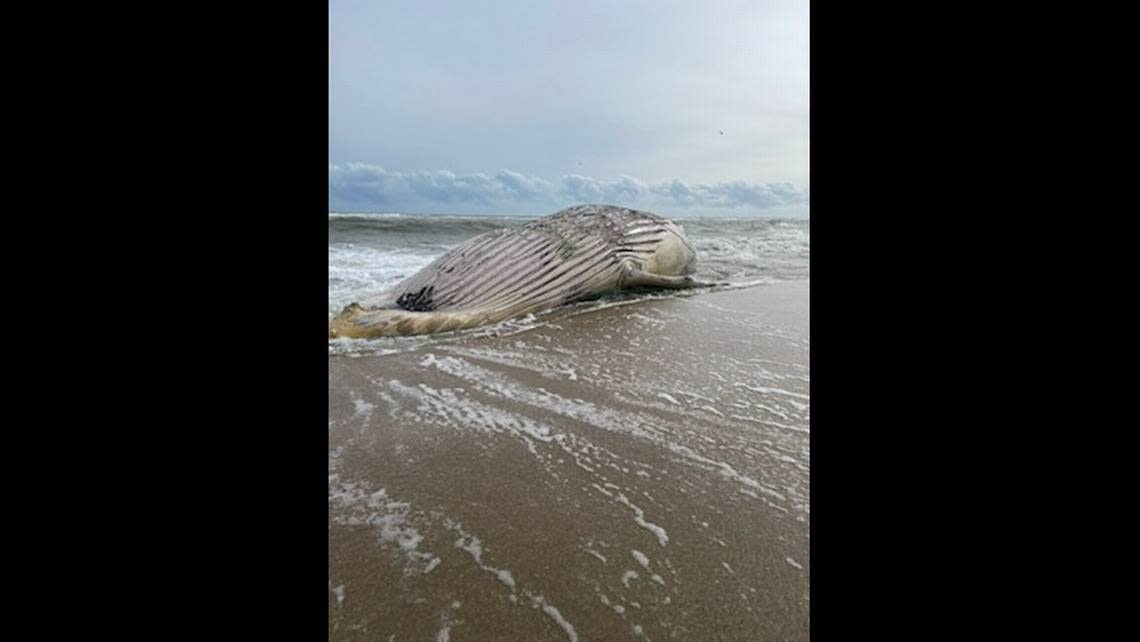30-foot humpback whale found on Outer Banks beach, National Park Service says
A 30-foot humpback whale has been found beached at Cape Hatteras National Seashore in North Carolina, according to the National Park Service.
It was discovered Monday, Dec. 5, “in the surf about two miles south of off-road vehicle ramp 38, located on Hatteras Island,” Cape Hatteras park officials reported.
A necropsy is being conducted to determine how long it has been dead and a possible cause, park officials said.
“Whales of this size take a long time to naturally decompose and/or wash back out to sea, so it’ll likely need to be buried in a nearby area of the beach,” park spokesman Michael Barber told McClatchy News.
All species of humpback whales are considered an endangered species in U.S. waters, NOAA says. The most common causes of fatalities are fishing gear entanglement and being struck by vessels, experts say.

Photos posted by witnesses on social media showed a small amount of netting was looped around the whale’s tail.
Humpbacks can reach 60 feet and live up to 90 years, NOAA reports.
There have been 14 documented humpback whale strandings at Cape Hatteras National Seashore in the past decade, “including four strandings in 2017.” Records dating to 2008 show 27 documented strandings inside the park, officials said.
“Humpback whales live in all oceans around the world. They travel great distances every year and have one of the longest migrations of any mammal on the planet,” NOAA says.
“Some populations swim 5,000 miles from tropical breeding grounds to colder, more productive feeding grounds.”
‘Upsetting’ discovery made in belly of whale on Nova Scotia beach, researchers say
Dead whale stuck on California beach could suddenly shift onto passersby, experts warn
Hikers thought they saw garbage along Alaska coast. It was a field of large bones
